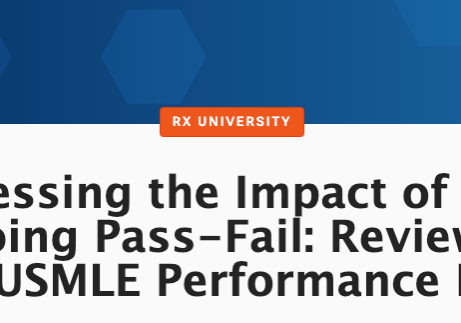In the first year of medical school, you’ll take many exciting courses that will prepare you for the coming years — from your time in med school to when you’re a physician treating patients. One of the most vital subjects you’ll study is biochemistry.
What Is Biochemistry All About?
Simply put, biochemistry is the study of living systems at the molecular level. Biochemistry in everyday life is quite complex — just think of the multitude of chemical processes you learned during undergrad to understand living things! We’re talking elaborate enzymes, breakdown pathways, synthesis pathways, etc.
It’s not unusual for med students to wonder why understanding biochemistry is important for future physicians. Isn’t it too basic? Actually, no. And we have some biochemistry examples in the medical field to prove it.
For instance, so many of the drugs and diseases you’ll see on the clinical side can be explained and understood on a molecular level through biochemistry. The common blood thinner Warfarin? It’s an enzyme inhibitor. The diabetic patient in the ER with tremendously high blood sugar (diabetic ketoacidosis)? It might be the result of a life-threatening complication from glucose dysregulation.
In many ways, biochemistry is foundational knowledge for physicians. To master diagnoses and treatments, you must first have an understanding of biochemistry in disease processes. After all, you have to learn those enzymes and biochem pathways before you can truly understand diseases!
Now that you get the importance of biochemistry in everyday life as a physician, you might be wondering how to understand biochemistry in medical school. The last time you learned about the subject was during undergrad, which probably feels like forever ago.
As with most topics in medical school, certain information within biochemistry is considered “high yield.” But how can a student identify the high-yield information within biochemistry?
First and foremost, check First Aid for the USMLE Step 1. Is a biochemistry concept you’re learning about absent from First Aid? Or is it bolded and emphasized? That’s generally a good place to start.
Second, look at the questions commonly asked in Qbanks like USMLE-Rx. You’ll notice certain themes and biochemistry examples come up more often, such as rate-limiting steps, glycogen and lysosomal storage disorders, and others. That’s a good indication of a high-yield topic, which is where you should focus your studying.
How to Understand Biochemistry in the First Year of Med School
How should a medical student such as yourself go about learning and retaining that high-yield biochemistry information? Here are a few strategies to get you started:
1. RxBricks: Biochemistry is the study of a foundational subject from which many others will build, which is why it’s so vital. A study tool like RxBricks can help you increase that foundational knowledge, using high-yield, interactive, and customizable lessons to help you quickly grasp concepts.
2. Flash Cards: Using flash cards is a time-tested method to study and retain factual knowledge. This approach engages active recall, which leads to improved confidence-based repetition. Because of that, flash cards are useful when learning complex and memorization-heavy topics, like biochemistry.
3. Drawing Pathways: Sketching out the biochemical pathways is a great way to become familiar with the nitty-gritty details you’ll need to know for USMLE Step 1. Plus, each pathway you learn will most likely connect to one another as well as the other biochem subjects you cover. If you draw them all out on a piece of paper, you’ll be able to see those connections clearly.
4. Question Banks: Understanding biochemistry and memorizing the information is important, but you also have to be able to apply it in real-world settings. To master biochemistry in everyday life — and perform well on Step 1 — a Qbank is a must. When you answer practice questions regularly and frequently, those biochemistry examples will transition into your long-term memory.
Understanding biochemistry isn’t always easy, but it is key to success in med school — and as a physician. With these strategies in your back pocket, you’ll be well on your way to mastering the subject.
If you want help understanding biochemistry, click here to get a free five-day trial of USMLE-Rx, which includes Rx Bricks.




